At year-end, Kulanu Canada is purchasing a sewing machine for the “Tailor Training” program in Uganda which trains local Jewish women to become tailors, starting with making school uniforms for Jewish children.
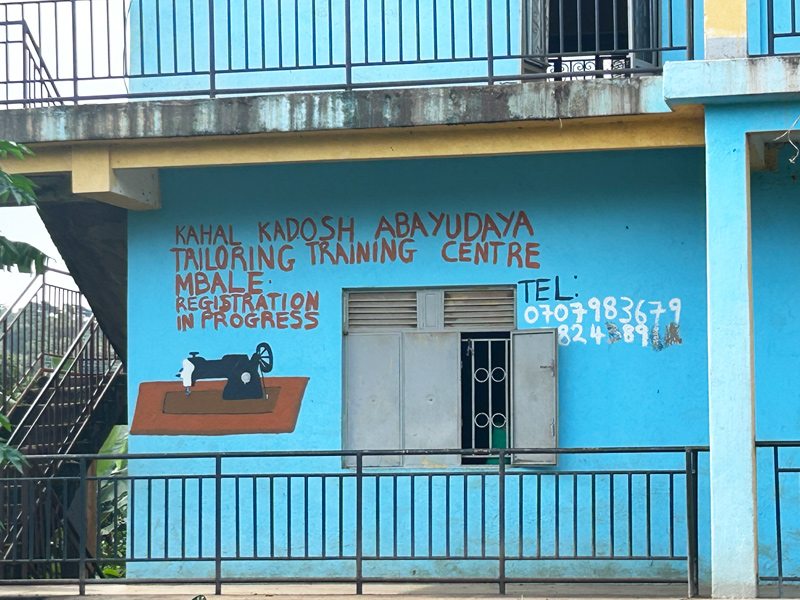
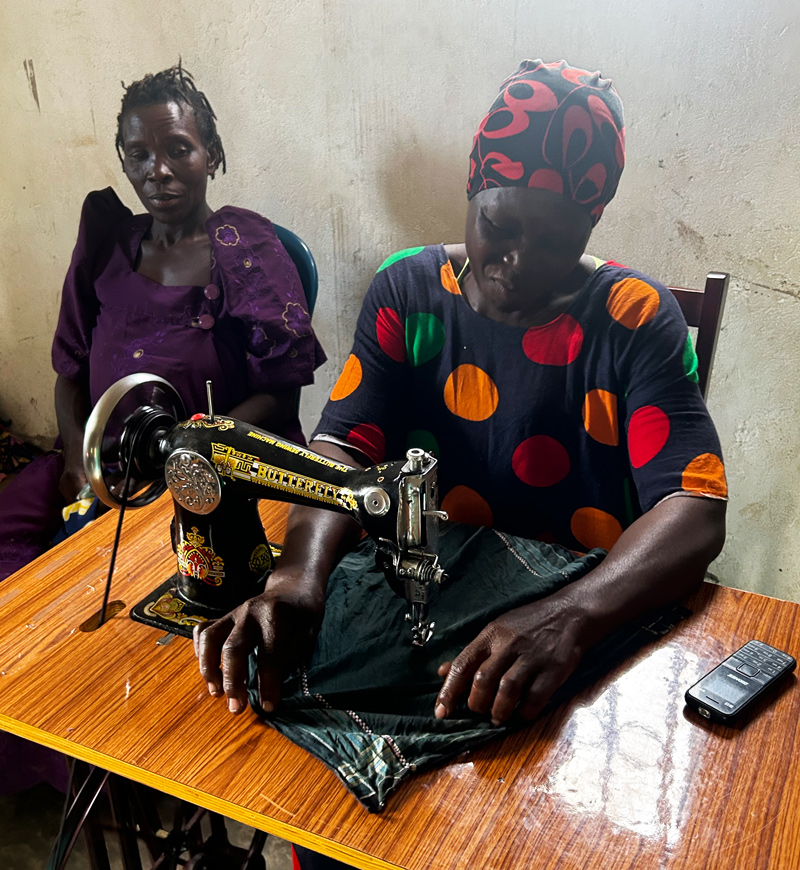
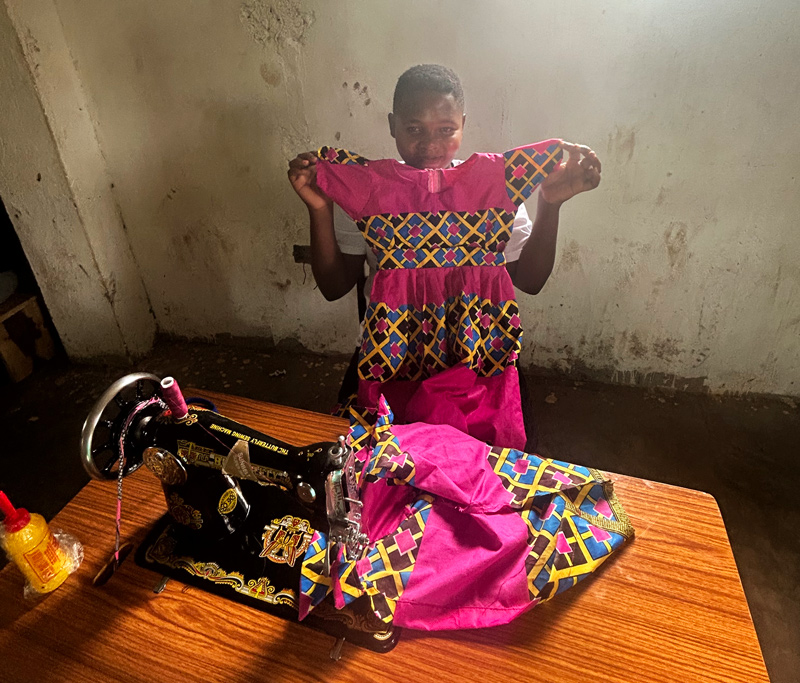
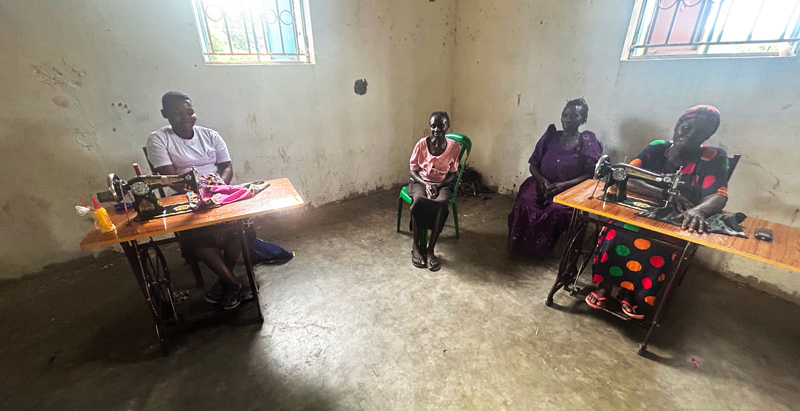
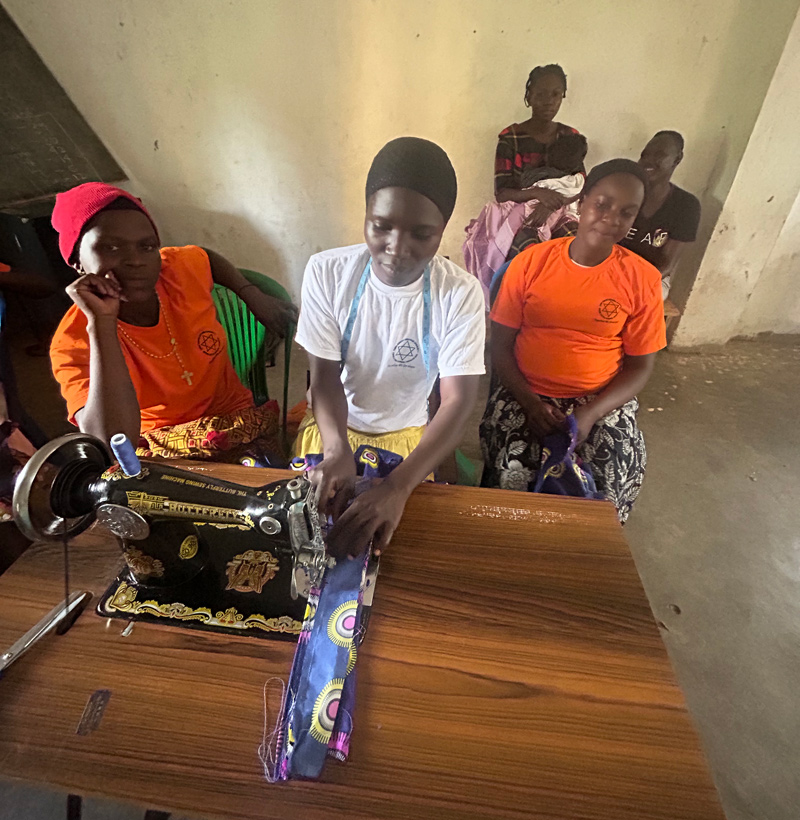
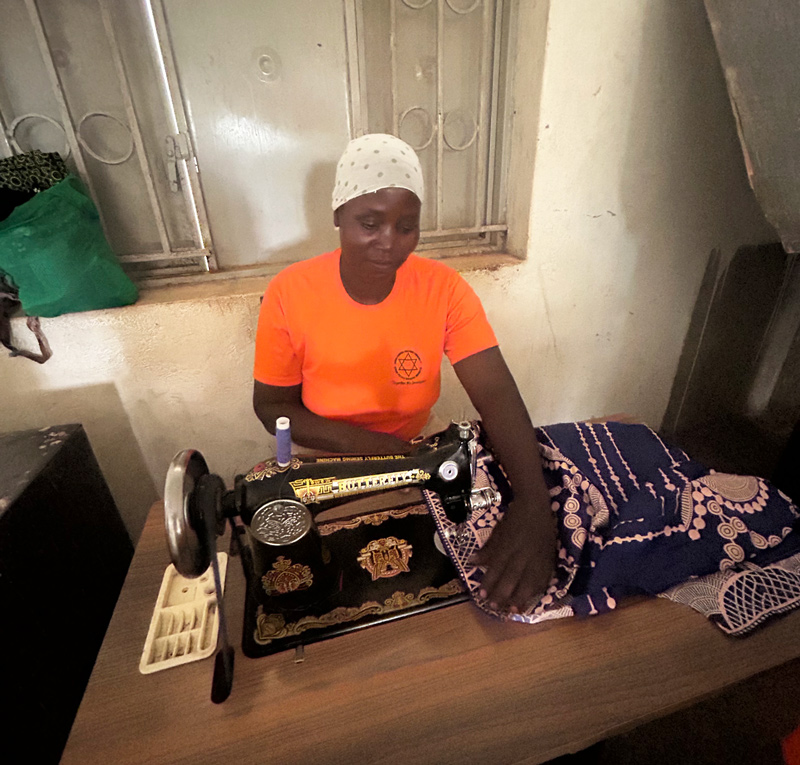
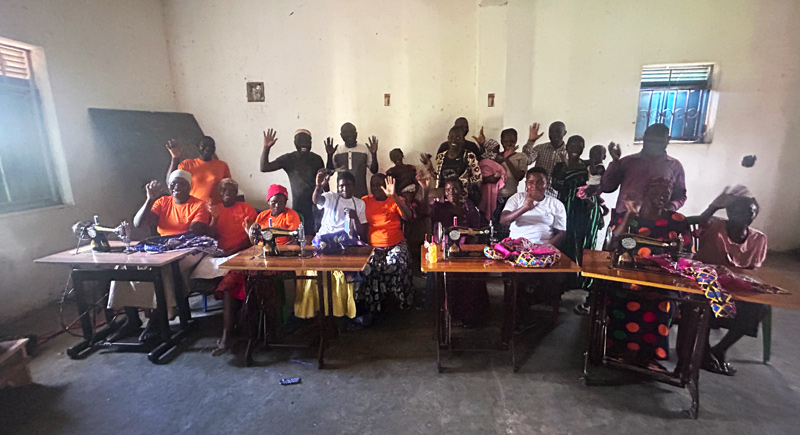
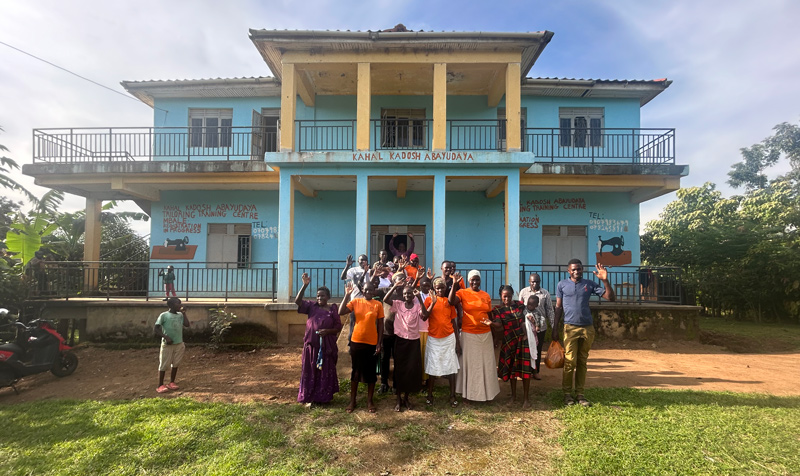
At year-end, Kulanu Canada is purchasing a sewing machine for the “Tailor Training” program in Uganda which trains local Jewish women to become tailors, starting with making school uniforms for Jewish children.









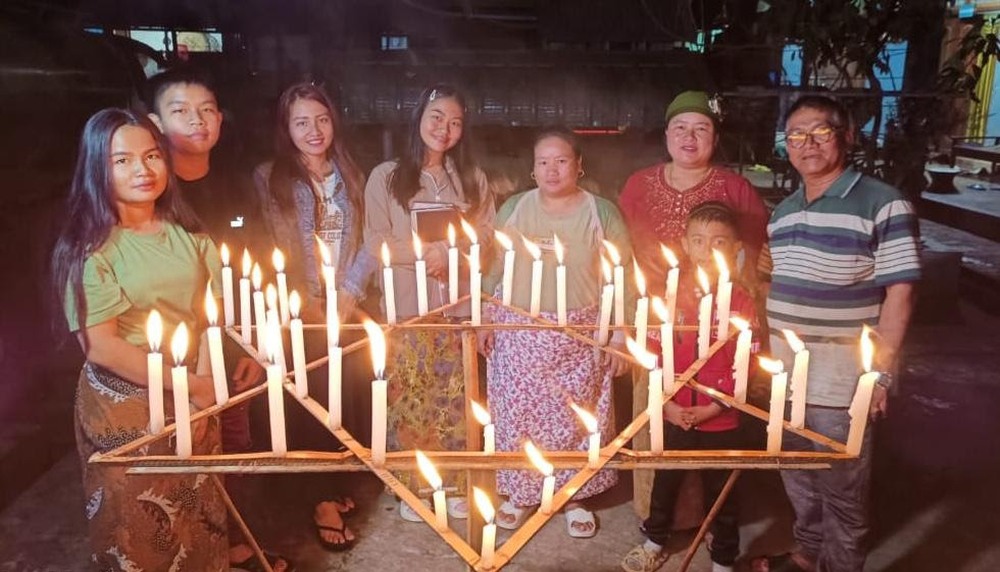

Hundreds of members of the Bnei Menashe community in India over the weekend celebrated the start of the weeklong Jewish holiday of Hanukkah, which began last Thursday night.
The main candle-lighting event was staged in Churachandpur, in the southwestern corner of the Indian state of Manipur.
During the ceremony, members of the community prayed for Israel’s soldiers fighting in Gaza, and the safe return of the hostages still being held by Hamas.
The Bnei Menashe, or sons of Manasseh, is a community of Indian Jews from various Tibeto-Burmese ethnic groups from the border of India and Burma. They claim descent from one of the Ten Lost Tribes of Israel, who were exiled by the Assyrian Empire more than 27 centuries ago.
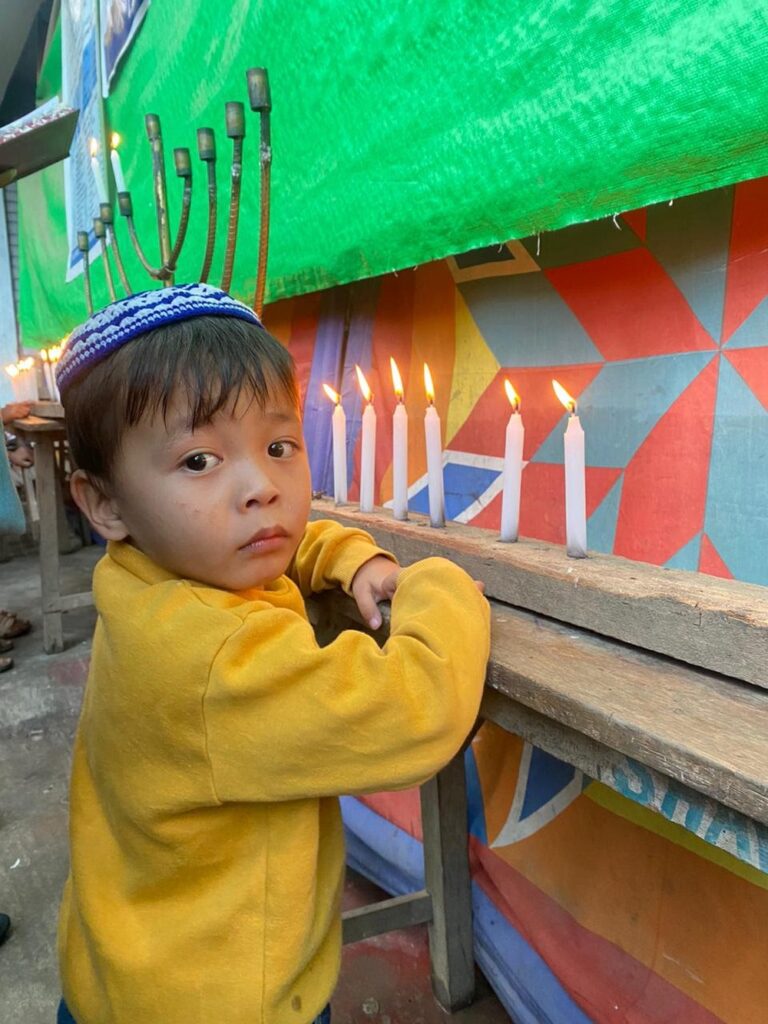
Up until a few decades ago, the community never celebrated the Festival of Light because their ancestors were exiled from the Land of Israel about 560 years before the events related to Hanukkah took place.
After their exile, the community wandered through Central Asia and the Far East for centuries, before settling in what is now northeastern India. They continued practicing Jewish traditions and customs and always maintained their desire to return to the Land of Israel.
The Shavei Israel organization, which encourages Jews across the world to strengthen their connection with Israel, has been helping the Bnei Menashe members make aliyah (move to Israel). Shavei Israel also helped organize the candle lighting event in Churachandpur.
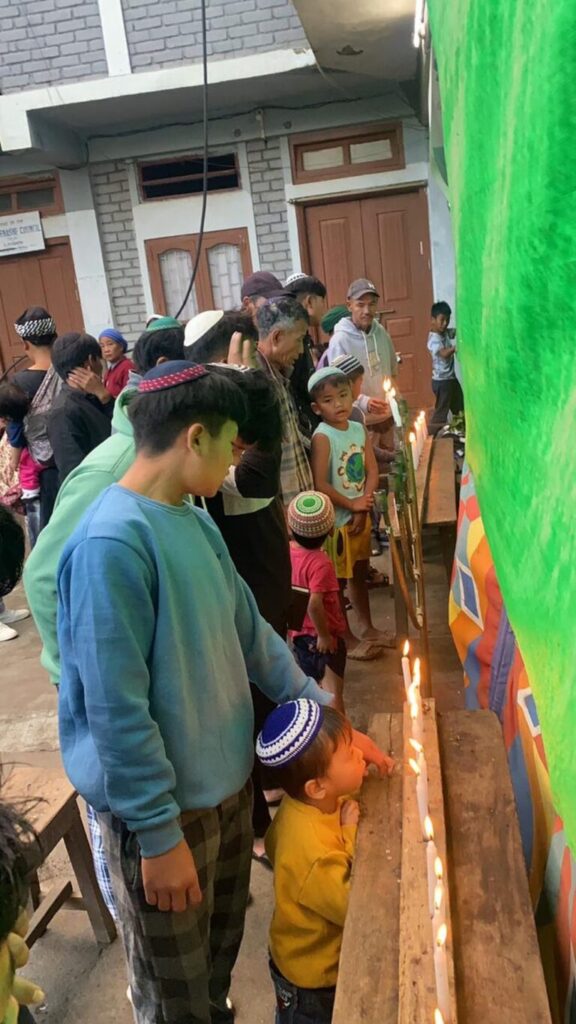
Over 5,000 members of the community have immigrated to Israel thanks to the Jerusalem-based organization, and 5,000 more are scheduled to arrive in the near future.
Shavei Israel Founder and Chairman Michael Freund said: “The story of the Maccabees’ heroic determination to preserve their Jewish identity resonates strongly with the Bnei Menashe, who – against all odds and with tremendous effort – have managed to cling to their faith and that of their ancestors down through the centuries.”
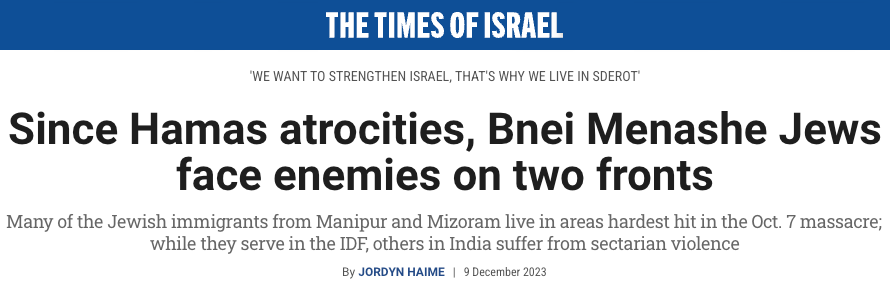
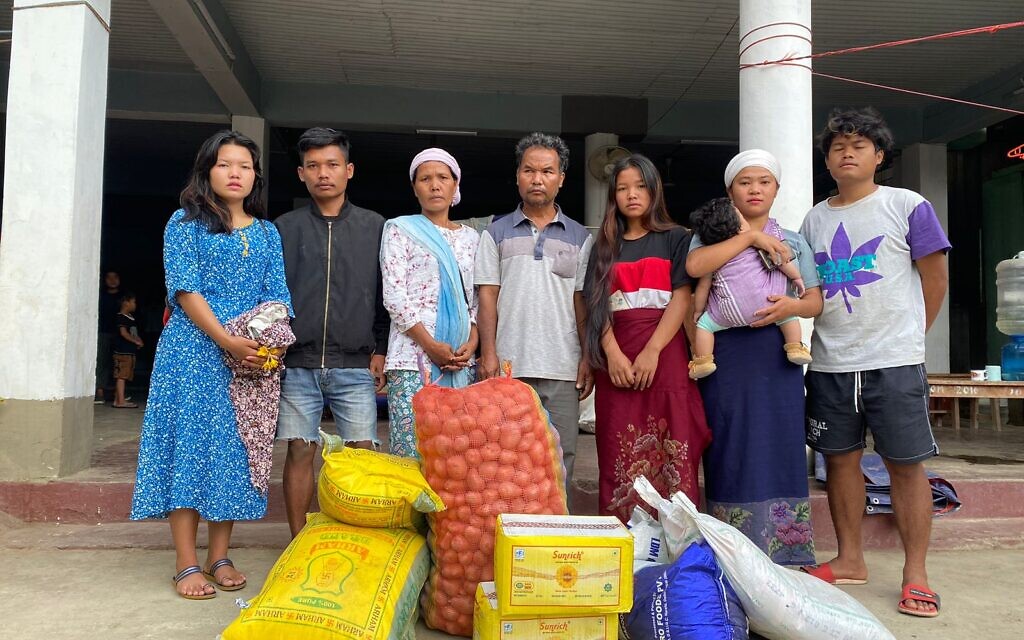
JTA — In the 2000s, as the small Israeli town of Sderot endured heavy rocket fire, thousands of residents left the city. Around the same time, a new population began moving in: Bnei Menashe Jews from the northeast Indian states of Manipur and Mizoram.
More than 100 Bnei Menashe families called Sderot their home until October 7. The community was deeply proud of what it created: the first synagogue and beit midrash — or Torah study hall — run exclusively by Bnei Menashe Jews. It was a dream, for many, that began halfway across the world in India.
The dream was interrupted when Hamas terrorists infiltrated many towns and kibbutzim surrounding Gaza, brutally murdering 1,200 people, mostly civilians, and kidnapping 240 more to the Gaza Strip. By the end of that day, 50 civilians and 20 police officers in Sderot had been killed, according to The Times of Israel.
But none of them were Bnei Menashe Jews.
That day, about 40 people gathered at a new synagogue building given to the community by Sderot’s mayor, Alon Davidi, only a few weeks before. Rabbi David Lhungdim recalled feeling rushed by Davidi to begin high holiday services there long before the community felt ready to make the move.
But in the end, the building saved them. The new synagogue, Alfei Menashe, is located to the east of Menachem Begin Road. While Hamas terrorists drove up and down that road on October 7 shooting people in the street, in their cars and in their homes, the Bnei Menashe prayed.
“I told them, let’s finish our morning prayer, we have no choice,” Lhundgim said.
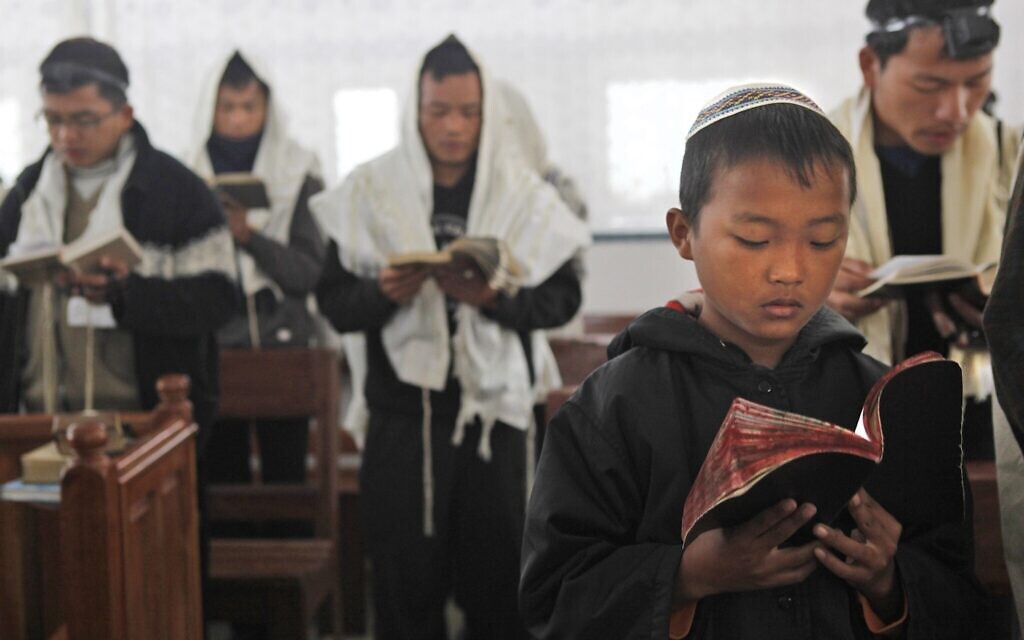
After the massacre, “I questioned myself, why was the mayor in a state of hurry? When it was Simchat Torah, everything was clear,” Lhungdim said. “I said, wow, this is a miracle that God gave us… Had we been praying at the old site [a caravan https://www.shivteimenashe.org/about-4 on Natan Elbaz Road, which does not have a bomb shelter], the terrorists would have seen us because they were on the main road and shooting everyone that they see. But because the mayor gave us the new site, we don’t need to cross the main road.”
Rivka Guite, Lhungdim’s sister, and her husband Zevulun had been visiting Guite’s mother for the holiday. Their home, located near the old synagogue where Hamas had been active, was destroyed in a Hamas rocket attack. Nothing could be salvaged from the rubble, Guite said.
But Guite is just thankful to be alive and living in Israel.
“It’s a miracle indeed. I really do not have an explanation for these things,” Guite said through a translation provided by Isaac Thangjom, project director at the Israel-based nonprofit Degel Menashe. “How many of us would have died if the old synagogue had been used?”

Now, most of the Bnei Menashe community in Sderot has been evacuated to Jerusalem and the Dead Sea, where they are waiting out the war in refugee hotels. An estimated 200 young Bnei Menashe men have joined the Israeli military’s war effort, Thangjom told JTA. One soldier, Natanel Touthang, was injured by a rocket while on duty at the northern border.
“When I went to the reserves without being called up,” Touthang said, “I did it for my family. It sounds selfish, but I did it for my family.”
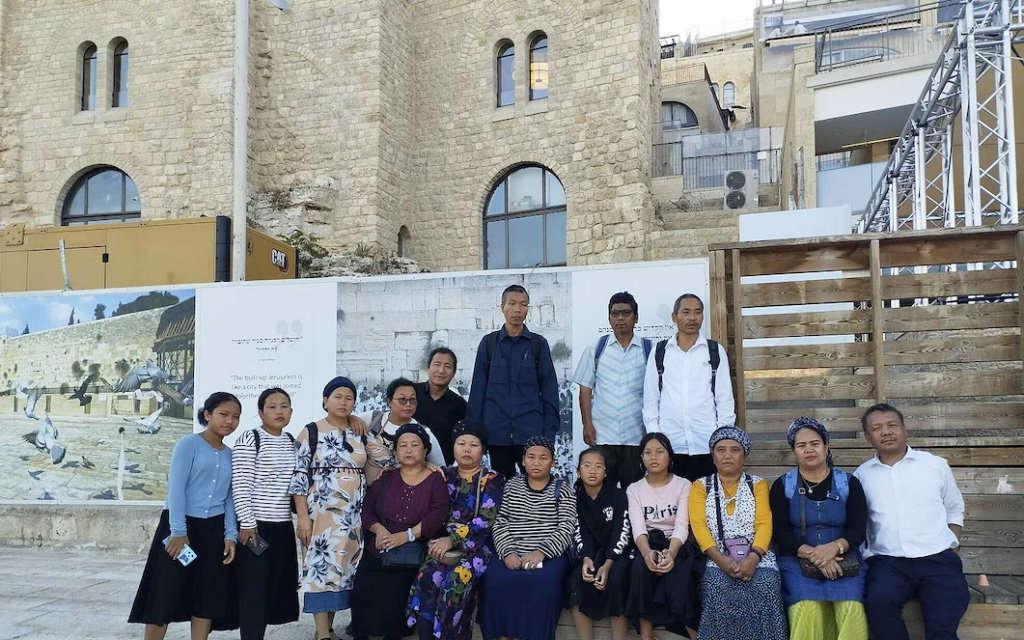
The Bnei Menashe Jews are said to be descendants of the “lost tribe” of Manasseh, separated from their fellow Israelites after exile over 2,000 years ago. They are part of the Kuki-Chin-Mizo ethnic groups that reside in northeastern India, western Myanmar, and southern Bangladesh.
Researchers say the group came to Judaism via Christian missionaries, who introduced them to the Bible in the late 19th century. Bnei Menashe tradition recalls the story of Met Chala, a Christian local tribal leader in Mizoram who was told by God in a dream to return his people to the land of Israel and their true religion: Judaism.
They began immigrating to Israel in the late 1980s with the help of Israeli Rabbi Eliyahu Avichail and his organization Amishav, undergoing formal conversions upon arrival. The immigration process was handed over to the Israeli nonprofit Shavei Israel in 2004, headed by Michael Freund, a former advisor to Benjamin Netanyahu.
Both Avichail and Shavei Israel have faced intense criticism and accusations of right-wing political motives from the Israeli left, as new Bnei Menashe immigrants moved to West Bank settlements upon arrival — particularly Kiryat Arba, which today hosts a community of about 700 Bnei Menashe Jews.
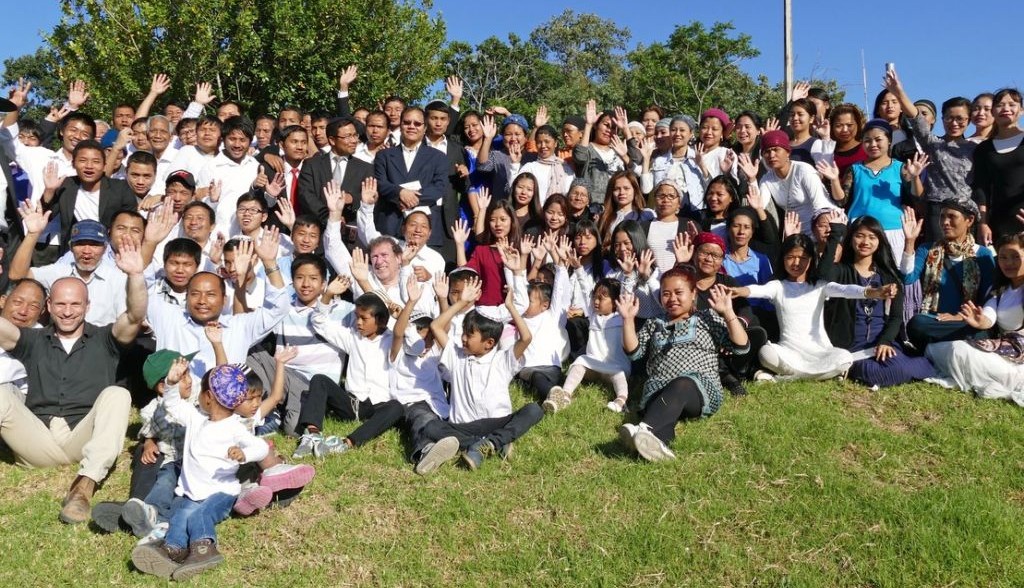
Shavei Israel halted that practice over a decade ago following the criticism, but some still move to settlements upon arrival to Israel to be with their families who already live there. Many have also settled in other towns within Israel’s pre-1967 borders.
Their settlement in the West Bank and on the border with Gaza has been less a product of political motivation than of convenience and accessibility, said Gideon Elazar, an anthropologist at Bar-Ilan University who researches the Bnei Menashe and other “lost tribes.”
“These were the communities that would accept them,” he said.
New Bnei Menashe immigrants have experienced difficulty learning Hebrew, finding profitable work and assimilating into Israeli society. Some experience discrimination and racism. Last year, Yoel Lhunghal, an 18-year-old Bnei Menashe Jew who had immigrated just a year earlier, was murdered in northern Israel. Though police found no evidence of a racial motive behind the attack, his father believes Yoel was “a victim of racism.”
The case of Lhungdim’s Sderot community is a slightly different story. The 120-family-strong community moved there on their own accord, Lhungdim said. Some came from other areas such as Carmel and Kiryat Arba — both towns where Lhungdim lived before coming to Sderot — and some directly upon arriving from India to join their families. Affordability was a major factor, as costs were lower due to Sderot’s location on the Gaza border. The area also offers work that corresponds with the Bnei Menashe community’s skills, such as fruit and vegetable packing.
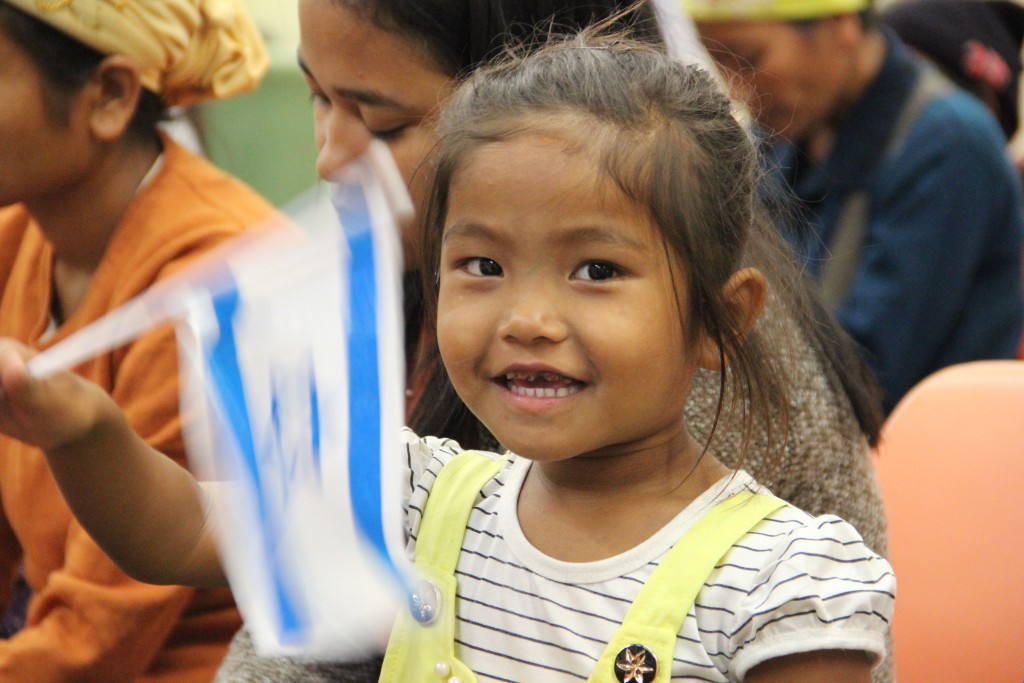
“We want to strengthen Israel, that’s why we go to live in Sderot. And I’m proud to be from Sderot,” Lhungdim told JTA. “As a convert Jew, I would have been ready to sacrifice my life to the Jewish nation.”
Like other Israelis in towns near Gaza who survived the October 7 attacks, the entire Bnei Menashe community in Sderot was relocated to hotels in Jerusalem. The more than 100 families staying there have kept busy by continuing religious education, praying at the Western Wall and enjoying free admission to local museums. Many had never before enjoyed stays at four-star hotels or had the opportunity to spend much time exploring Jerusalem.
But they are still eager to get back to their hometown. Guite and other community members have been making day trips to the south to tend to vegetable fields that have been left abandoned since the evacuation.
“The government is doing so much for us, and of course, we are only too happy to contribute and give something to Israel in forms of service,” Guite said.
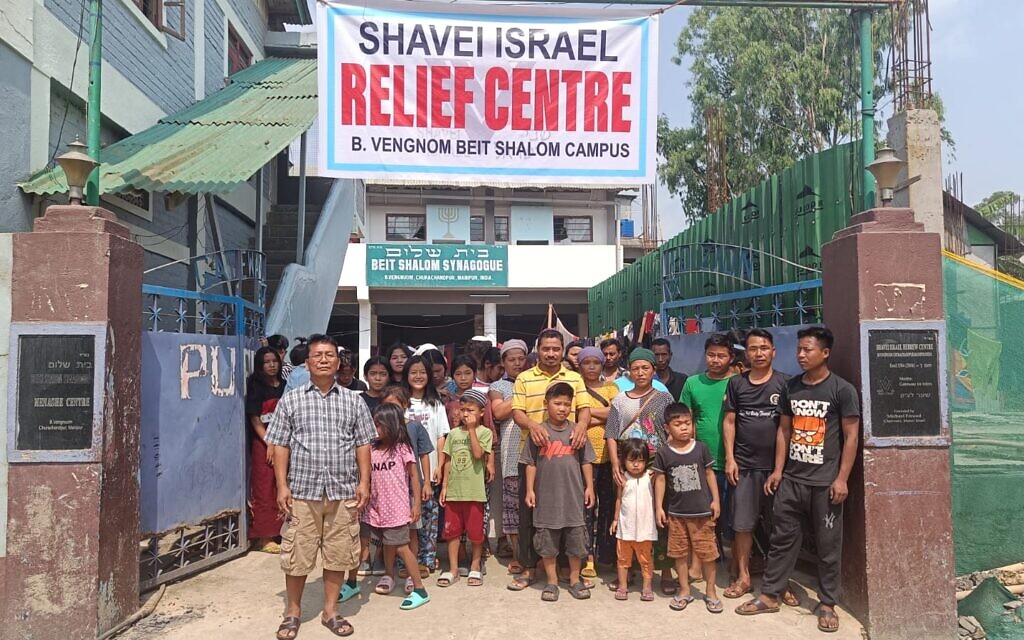
Bnei Menashe Jews are now facing war and displacement on two fronts: within Israel, and in Manipur, where an ethnic conflict has been raging for nearly eight months.
There, hundreds of Bnei Menashe Jews are rebuilding their lives in the midst of an ethnic conflict that began in May and has no end in sight. Human rights groups say the ethnic Kukis — the group to which the Bnei Menashe belong — have been targeted by the majority Meiteis in what some have called an “ethnic cleansing.” Many Kukis have been forced out of their local valley, which is now mostly occupied by the Meiteis, to the hills, which have become Kuki territory.
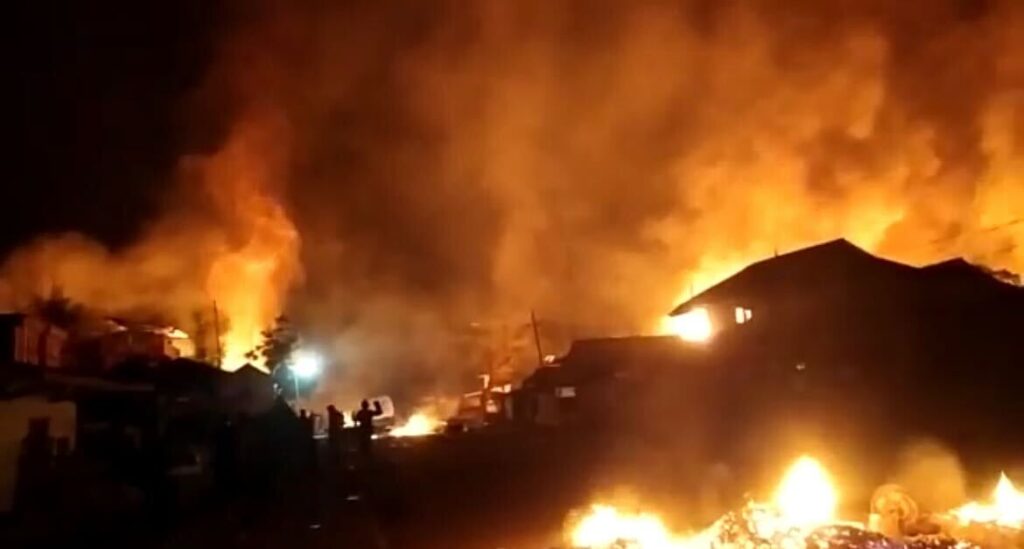
Others have moved to the neighboring Mizoram state, where other Bnei Menashe Jews live.
Unlike in Israel, the hundreds of displaced community members in northeast India have no hope of returning home, as new informal territorial borders based on ethnicity have become the norm. Many are living in newly built houses with vegetable plots on a picturesque 200-acre piece of land donated by community leader Lalam Hangshing. It has been named “Maoz Tzur,” and Degel Menashe, which advocates for the community, proudly refers to it as India’s first kibbutz.
These Jews have dreamed of immigrating to Israel for more than two decades. Thangjom called the war a “setback” to the process and will lengthen the timeline before the next slate of immigration, but conversations with the government are continuing, he said.
The war in Israel also impacted the amount of aid that Degel Menashe has been able to provide to Bnei Menashe refugees in India, as international Jewish organizations pour money into Israel.
“Since the war started in Israel, I don’t know if I’ll be able to give the same amount of help. But we are approaching our donors,” Thangjom said.

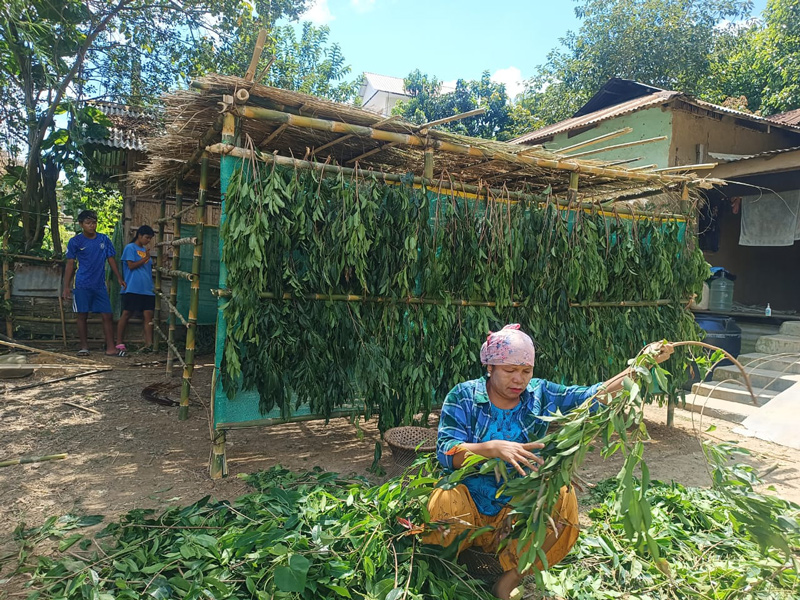
The temporary shelters that Jews erect during the holiday of Sukkot are meant in part to recall a time when Jews had nowhere permanent to live. In Northeast India, that symbolism is heavy with additional meaning this year.
That’s because large numbers of Bnei Menashe, the Jewish community that lives there, have fled their homes in the state of Manipur since ethnic unrest broke out in early May.
According to the Israeli organization Shavei Israel, about 2,000 people from the Jewish community have been displaced. A different nonprofit that works with the community, Degel Menashe, cites a smaller number, 700.
But either way, the community has been ravaged, with three locations that have been home to large numbers of Bnei Menashe decimated in the violence. Synagogues and homes have burned to the ground, and the number of displaced people has only grown with time.
Now, as the conflict enters its sixth month, what many believed would be temporary displacements in the Manipur hills or the neighboring state of Mizoram are becoming permanent.
“Despite these challenging times for the Bnei Menashe and even in the farthest reaches of northeastern India, they have continued to uphold the ancient tradition of building Sukkot in honor of the festival,” said Michael Freund, chairman and founder of Shavei Israel, which helps “lost tribe” communities return to Israel.
Shavei Israel distributed pictures showing members of the community constructing sukkahs out of bamboo. Their efforts come as their own safety in their areas where they live is in question — or already compromised.
“[For] the Bnei Menashe and the rest of the people who have left Imphal, I don’t think there is any chance of them returning back because there is no security,” said Isaac Thangjom, the Israel-based director of Degel Menashe, which assists Bnei Menashe communities in Israel and India, referring to Manipur’s capital city. “If you ask me honestly, the separation is complete.”
The Bnei Menashe identify as descendants of a “lost tribe” group, tracing their origins to the Israelite tribe of Menasseh. In 2005, a chief rabbi of Israel affirmed their identity as a “lost tribe” group with historic Jewish ties, but researchers have not found sufficient evidence to back the claim. Bnei Menashe Jews began immigrating to Israel in the 1990s, and because of their “lost tribe” status, they all undergo formal Orthodox conversions upon arrival. Around 5,000 remain in the states of Manipur and Mizoram today, and about 5,000 have already immigrated to Israel.
Many have struggled to gain entry into Israel over the past two decades, and they are now asking the Jewish state to expedite the immigration process to help them escape the violence.
Israeli authorities have yet to comment publicly about the situation and did not respond to multiple requests for comment from the Jewish Telegraphic Agency. Israel has recently been seeking to advance its relations with India.
Conflict erupted in May when tribal groups in Manipur launched a protest against the ethnic majority Meitei’s demand for Scheduled Tribe status, which is traditionally reserved for minority tribes. The Bnei Menashe Jews belong to the minority Kuki tribe.
The Kukis (about 16% of the population and majority Christian) say the Meiteis (53% and majority Hindu) already have outsized privilege and political representation in Manipur.
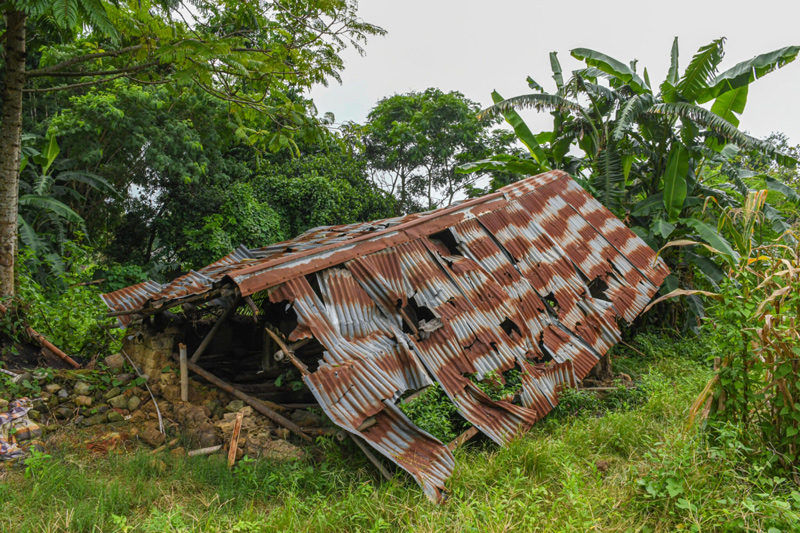
According to local reports, unofficial “but very real” borders have been drawn between what have become Kuki and Meitei areas. Prime Minister Narendra Modi’s government has been criticized for failing to control the situation. In August, opposition lawmakers called for a no-confidence vote over Modi’s handling of the situation, but it was easily defeated.
Some 190 people have died in the conflict since May, according to local media, including at least one Bnei Menashe community member. Over 60,000 are displaced.
Several other Bnei Menashe Jews are hospitalized with injuries, according to Shavei Israel.
In the face of displacement, the Bnei Menashe Jews have remained religiously observant, even as some fled with nothing more than their prayer books and the clothes on their backs, a Mizoram Jewish community member told JTA in June.
“It was so sudden,” said Ariella Haokip, a Bnei Menashe community member taking shelter in Thingdawl, Mizoram. “Funds were sent to us to buy special items for Rosh Hashanah and now for Sukkot. In spite of our misery, it is comforting to think that we are remembered.”
Some are currently staying at government shelters, others at schools and homes of other community members, or rented homes paid for by nonprofit groups. In Thingdawl, Mizoram, one young member has begun organizing Hebrew classes for displaced members, said Thangjom.
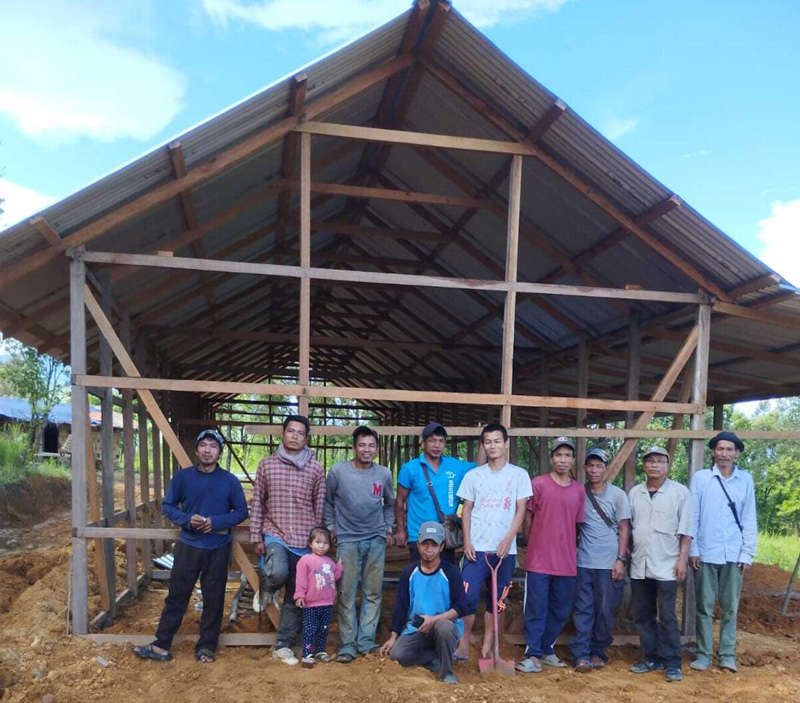
Both Shavei Israel and Degel Menashe have been working since May to provide continued support to the Bnei Menashe Jews through donations of food, mattresses, mosquito nets, infant formula, medicines and other necessities. Both organizations have arranged shelters for displaced families. Additional financial support has poured in from Jewish and Christian organizations in the United States and Israel.
For some, the High Holiday season also represents a new beginning, as Degel Menashe races to construct homes for several Bnei Menashe families. Lalam Hangshing, chairman of the Bnei Menashe Council-India, donated a piece of land of about 200 acres in Churachandpur on which nine homes are being constructed.
“It was hoped that it could be ready by Rosh Hashanah but there were some unforeseen delays and challenges,” said Thangjom. “Each family will be allotted a piece of land to grow or raise something of their choice so that it can be a source of livelihood for them.”
Click here to view the original posting on the JTA website.
https://www.jta.org/2023/10/02/global/displaced-by-ethnic-violence-indias-bnei-menashe-jews-construct-sukkahs-nonetheless